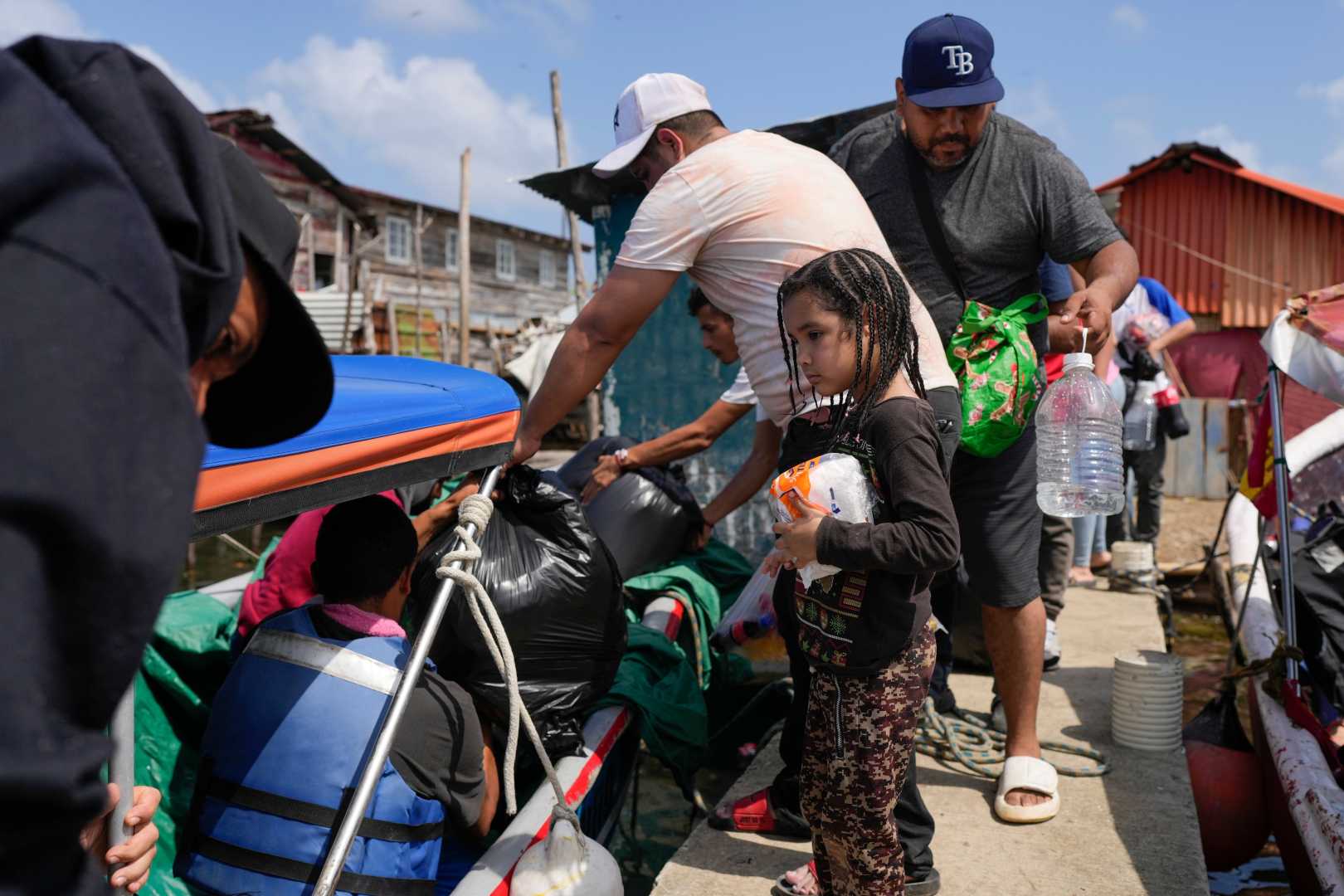World
Venezuelan Migrants Abandon Hopes of U.S. Asylum, Return Home via Panama

PUERTO CARTÍ, Panama (AP) — After months of treacherous journeys through jungles and deserts with the hope of reaching the U.S., many Venezuelan migrants are now surrendering their aspirations for asylum and returning home. Amid strict migration policies from President Donald Trump, these migrants are opting for boat rides back to Colombia instead of enduring the ordeal of crossing through southern Mexico.
On February 23, 2025, a group of around 20 Venezuelans boarded a boat in Gardi Sugdub, a small coastal island in Panama, pointing their vessel towards a brighter hope waiting across the Colombian border. Luis Sanchez, a migrant who was part of the group, expressed the defeat felt by many: “We thought we had a chance, but everything changed with the new laws. We can’t keep trying to reach a dream that feels out of reach.”
For many, this reversal is part of a broader trend. The so-called “reverse flow” of migrants stems from both the discouraging immigration policies in the U.S. and the exhaustion suffered during their arduous journeys. Many had previously waited in Mexico for months to receive an asylum appointment using the Biden-era CBP One app, only to find their application options severely narrowed.
Karla Castillo, a 36-year-old Venezuelan traveling with her sister, added, “When they eliminated the application, all our hopes went up in smoke.” Faced with the confounding reality that their dreams of asylum were unattainable, she expressed mixed feelings about heading home. “I can’t go back to nothing. I risked everything to escape Venezuela, and yet here I am.”
The boat rides, carrying those desperate for hope, take them across perilous waters often frequented by smuggling operations. The fees for passage can range from $200 to $250, a significant amount of money, particularly for those who have already spent most of their savings in their pursuit of a better life. Many now face the harsh reality of returning to countries they left in search of better opportunities.
Estebani Llerena, another returning migrant, highlighted the grim atmosphere among her fellow travelers in Puerto Cartí, where they waited for their boats. Parents and children, drained from their exhausting odyssey, shared their stories as they clutched tightly to their few belongings. “We once thought we could start anew, but now we must face reality. At least we can go home together,” Llerena stated.
The plight of returning migrants is compounded by economic strife in Venezuela, further exacerbated by unstable governance and social unrest. Some migrants recollected their earlier travels across the Darien Gap, which required days of navigating through rugged and dangerous terrain.
Across the region, the rising tide of migrants returning has been noted in neighboring countries as well. Costa Rica, for instance, reported daily crossings of 50 to 75 migrants heading south, down from the thousands previously making the northward trek.
Despite the downturn of migration out of Venezuela, many of those remaining feel they have no choice but to leave. Celia Alcala, waiting to board a boat, voiced her concerns about returning. “There are people like me who are terrified to return home after the elections. It’s not better anywhere else.”
Tragedy struck on Friday when a boat capsized off the coast of Panama due to rough waters, resulting in the heartbreaking death of an 8-year-old child, igniting further fears among those waiting to board. Juan Luis Guedez, a migrant who witnessed the devastation, said, “I don’t know if we will get there alive, but if we make it, I just want to return to Chile where my daughter was born.”
The humanitarian crisis continues to unfold as governments struggle to adapt to the growing number of migrants facing dire situations both at home and abroad. For now, many Venezuelans opting for the return journey find solace in community, sharing their stories woven from loss and hope after abandoning the once cherished dream of seeking asylum in the U.S.












